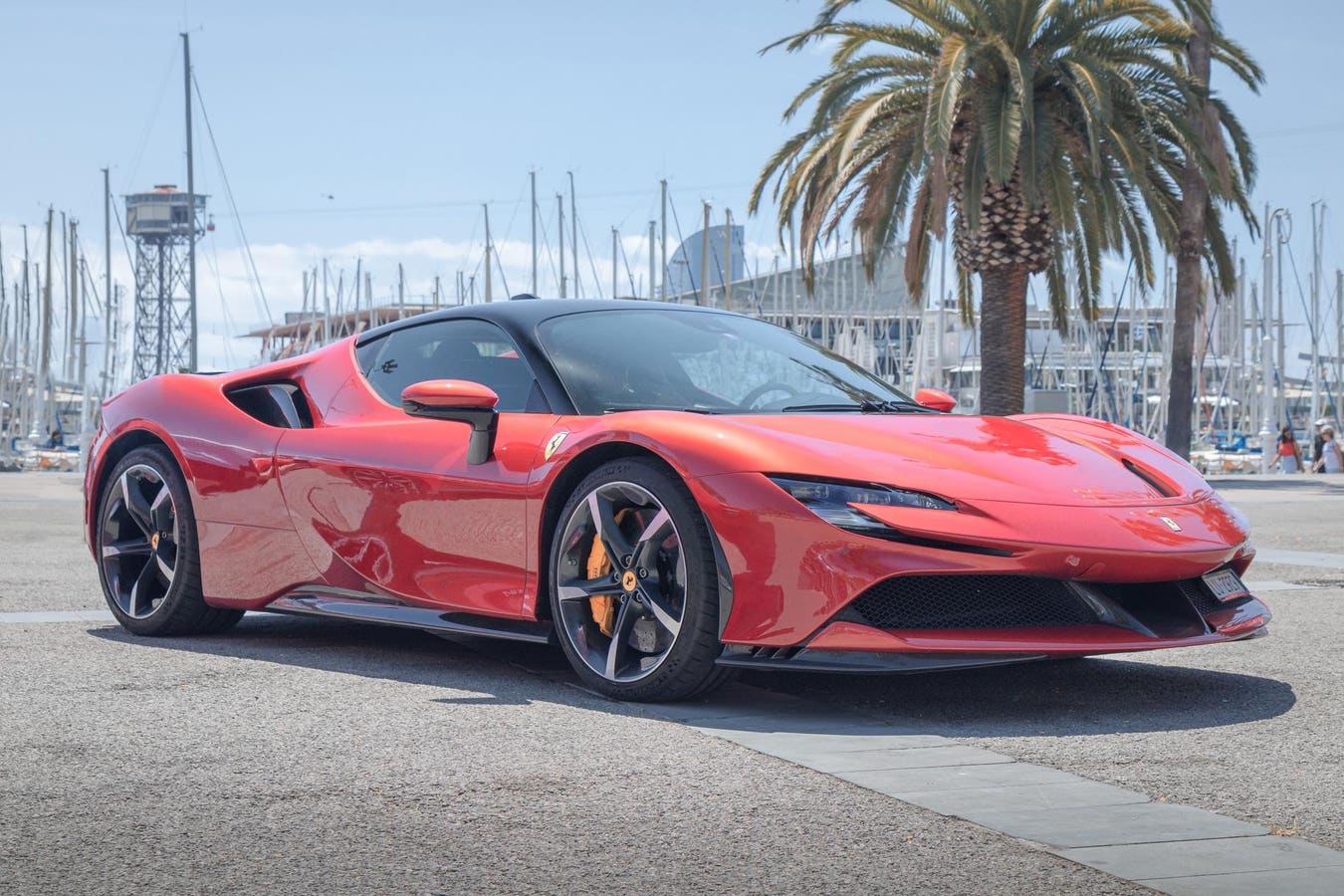The Ferrari SF90 Stradale takes advantage of YASA’s electric motor technology.
Electric cars predate those running on fossil fuel, but development was mostly dormant for a century after the combustion car took over in the early 1900s. The EV as we currently know it has only been around for a little over a decade. There’s a lot of technological development taking place now, however. While most of the attention has been on batteries, motor innovation is extremely important too. One of the leading companies driving new motor technology is the UK’s YASA, purchased by Mercedes in 2021. I talked to Tim Woolmer, Founder and CEO of YASA, about what makes his company special.
YASA Technology: Available In An Electrified Supercar Near You
The YASA name may not be familiar, but its electric motors are the secret sauce behind hybrid supercars including the Ferrari SF90 Stradale and 296 GTB, Lamborghini Revuelto and Temerario, McLaren Artura, and Mercedes-AMG GT 63 S E-Performance. The latter is particularly relevant because of YASA’s ownership change. This will also be the brand of the first all-electric car to use YASA motors.
“AMG has spoken about its new architecture, AMG.EA, and the first car launched will be high performance electric vehicle,” says Woolmer. “It’s going to be a lot of fun, but it will be a different clientele than a mid-engine supercar.” YASA’s focus will remain high-performance cars, but the company always had wider goals. “Our core mission is to accelerate electrification. Our customers today have a good fit with the USPs of the product. They appreciate the size, light weight, repeatable performance, and efficiency.”
The Lamborghini Revuelto is another electrified supercar using YASA’s motors.
Originally, the YASA motor was extremely low volume, used in halo hypercars such as the Jaguar C-X75, Koenigsegg Regera and a land speed record car produced by Lola-Drayson. Now YASA is increasing its production capacity considerably. In 2024, the company produced 14,000 motors, and with a new facility in Bicester Motion, this will increase to 25,000 motors annually for 2025-27. As part of the Mercedes relationship, its motors will also be produced in Berlin by Mercedes-AMG itself.
“We’re going down this journey of commoditizing the product, going to high volumes, and reducing costs,” says Woomer. “I’m absolutely convinced that the technology has got a perfect USP in the sports car industry. But as we move to new architectures, it could be commoditized to wider volume appeal. Lightweight is great for everything.”
YASA Motors Mean The Yoke’s On You
The clue to YASA innovation is in its name, which stands for Yokeless And Segmented Armature. The motors use a different design to conventional radial flux systems, which almost all other electric motors employ. They don’t have an iron core (or yoke), while the rotating part of the motor is segmented. This is an axial flux system, with permanent magnet rotors on either side of the electromagnetic stator. The result is around three times the torque density per kg compared to a radial flux motor, and a considerable reduction in raw material usage. Where a Tesla motor might have around 30kg of iron, a YASA motor only requires 3kg for the same power and torque. It’s also a quarter of the size with a third of the copper. While this is useful for any electrified vehicle, weight saving alongside high power are particularly beneficial for performance vehicles.
YASA’s Axial Flux design is much lighter and more compact than a traditional Radial Flux motor.
“There are no downsides to it,” says Woolmer. “You can take 200 kilograms directly out of a vehicle. Then you could start to see electric vehicles on par or even becoming lighter than their internal combustion engine equivalents. That’s a real problem we must deal with, because EVs have a weight problem. They’re up to 400kg heavier than a regular car.”
YASA can produce motors from 100hp to 1,000hp, depending on the application. Most of its projects so far have been tailored to a specific customer’s needs, rather than vice versa. However, this flexibility means YASA is ready to produce motors for all-electric cars. “The first pure EVs going to production will be with AMG,” says Woolmer. “The hybrids have been a wonderful preparation for that, because the motor is very similar.”
The YASA motor used by Ferrari.
The British Advanced Propulsion Centre (APC) has been a key factor in YASA’s growth. This is a joint UK government and industry-funded organization supporting the development of low-carbon propulsion technologies for the automotive industry to accelerate the transition to Net Zero. “I don’t think I would be exaggerating if I said I genuinely don’t think this factory would exist without the APC,” says Woolmer.
However, the Mercedes-Benz acquisition has enabled YASA to take its technology to a different level commercially. “YASA was never looking to be acquired,” says Woolmer. “But Mercedes put forward a compelling case for the purchase. They wanted us to be the speed boat; they didn’t want to destroy our culture. They wanted us to keep our innovation and our brand. In return, they’ve got the industrial might to invest in the technology, which they’ve done both here and in and in the factory in Berlin. Four years later, they were true to all those statements. They’ve invested a lot in the assets, giving us a big new facility at Bicester Motion. That was a £70 million investment, plus a big investment in the technology to scale it up. They have been the perfect scaling partner.”
YASA’s UK Tech Triumph
Despite the factory in Berlin, YASA will still be a UK-based company. “We will remain fully British with our headquarters in Bicester Motion,” says Woolmer. “All the R&D on the technology is happening here in the UK. Mercedes has manufacturing satellites all around the world, but manufacturing is not where the core Intellectual Property resides. The aspiration is to increase manufacturing the UK, not just do R&D here.”
YASA will continue to develop its technology and build motors in the UK.
The UK will also continue to manufacture for customers other than Mercedes, where Berlin will solely serve AMG. But now YASA has much more scale available. “Ten years ago, we struggled to make 150 motors,” says Woolmer. “Now, if we got a contract for 50,000 motors, we would know what to do.”
YASA isn’t sitting on its laurels and is already looking towards the next development. “The game changer will be in-wheel motor technology,” says Woolmer. “Renault launched the 5 Turbo 3E that will be the first production vehicle with in-wheel motors, although it’s a limited series.” Donut Lab is another company chasing this possibility. “We’re not focused on it yet, but in the future, we will talk about it a lot more. We’ve got technology that can radically transform the way we design vehicles, and that really is empowered by the size and the weight of the motors. People have been trying to crack in-wheel motors for 25 years, and it’s hard, but based off all the learning we’ve had so far, we think we’ve got the tech to do it.”









